What is QuikFix?
A brief telehealth intervention for substance use.

Why was Quikfix developed?
Alcohol and drug use is a major cause of injury, disability, and death in young people. It also increases the risk of a range of adverse mental health, social, and vocational outcomes. Despite this, young people experiencing substance use problems rarely seek professional help. Engaging at risk, non-help seeking young people into treatment requires a targeted, brief and youth-oriented early intervention approach.

The QuikFix brief intervention
QuikFix is a brief intervention designed for young people (aged 16 to 25 years) who have had contact with support services after experiencing alcohol or drug-related harm in a night-time entertainment precinct, or at an event/festival.
The intervention combines assessment feedback, motivational interviewing and individualised personality-specific coping skills training. It can be delivered over the phone or face-to-face by a trained counsellor over two 20-30 minute sessions. QuikFix practitioners are supported by a comprehensive manual, an interactive website, dedicated training, and a suite of youth-oriented resources, factsheets and materials. The materials can be sent to the young person via email.
The intervention is comprised of three modules:
Module 1 - Assessment Feedback
Young people complete a brief survey about their alcohol, other drug use and related problems and mental health.
The young person and counsellor receive immediate assessment feedback in an easy-to-read format, to explore together.
The assessment feedback includes information about the young person’s alcohol and other drug use and how this compares to other young people their age.
Module 2 - Trivia and Goal Setting
Trivia quizzes are used to explore the young person’s knowledge about alcohol and other drugs.
Youth-friendly factsheets on alcohol and a range of other drugs can be sent to the young person.
Motivational interviewing techniques are used to build the young person’s motivation to minimise harm or make a change in their alcohol or other drug use.
The young person is asked to explore their patterns of alcohol or other drug use in different contexts.
They are encouraged to identify their “stupid line” for alcohol or other drug use, a concept developed by young people to define the point when a good time starts to turn bad.
The young person examines the pros and cons of their alcohol or other drug use. They are then asked to set a goal to either reduce their substance use (including staying below their stupid line) or use more safely (harm reduction).
They are then asked to select some harm minimisation tips for reducing their risk of harm when using alcohol or other drugs.
The young person is then encouraged to develop a simple plan to achieve their harm reduction or substance use reduction goal at an upcoming event or situation, using the harm minimisation tips.
Tailored text messages and emails are sent to the young person to remind them of their plan.
Module 3 - Risk Targeted Coping Skills Training
The young person receives feedback about their personality risk profile for substance use.
Individualised personality-specific coping skills training is provided to target:
- Negative urgency – using alcohol or drugs to avoid negative feelings
- Positive urgency – using alcohol or drugs when feeling positive or excited
- Sensation seeking – using alcohol or drugs to seek out new or novel sensations and experiences
- Impulsivity – using alcohol or drugs without thinking of the consequences
- Lack of perseverance – using alcohol or drugs to avoid completing tasks or goals
- Young people are provided with training in at least two personality-specific coping skills.
The young person is then encouraged to develop a simple plan to achieve their harm reduction or substance use reduction goal at an upcoming event or situation, using their coping skills.
Risk-targeted coping skills training is offered to support the young person in achieving their harm reduction or substance use reduction goals.
Tailored text messages and emails are sent to the young person to remind them of their plan.
What does the evidence say?
Brief interventions are an important part of the broader range of treatment options for alcohol and other drug concerns. For young people, evidence shows that brief interventions are effective in reducing alcohol consumption, compared to no treatment. However, there is substantial scope to increase the impact of brief interventions, as few have been adapted to the needs of young people.
QuikFix combines assessment feedback, motivational interviewing and individualised personality-specific coping skills training to reduce alcohol or other drug use, and related harm. A randomised controlled trial (RCT) led by Prof Leanne Hides examined the efficacy of QuikFix with 398 young people with an alcohol-related injury or illness who accessed an emergency department or support service located in the Brisbane night-time economy. Two sessions of QuikFix were compared to two sessions of motivational interviewing and a one session assessment feedback control group. All sessions were delivered via telephone. This study found those who received QuikFix achieved the largest reductions in alcohol use at follow up, compared to those who received motivational interviewing or assessment feedback alone.
These results indicate QuikFix was the most effective brief intervention for reducing alcohol use in young people.



